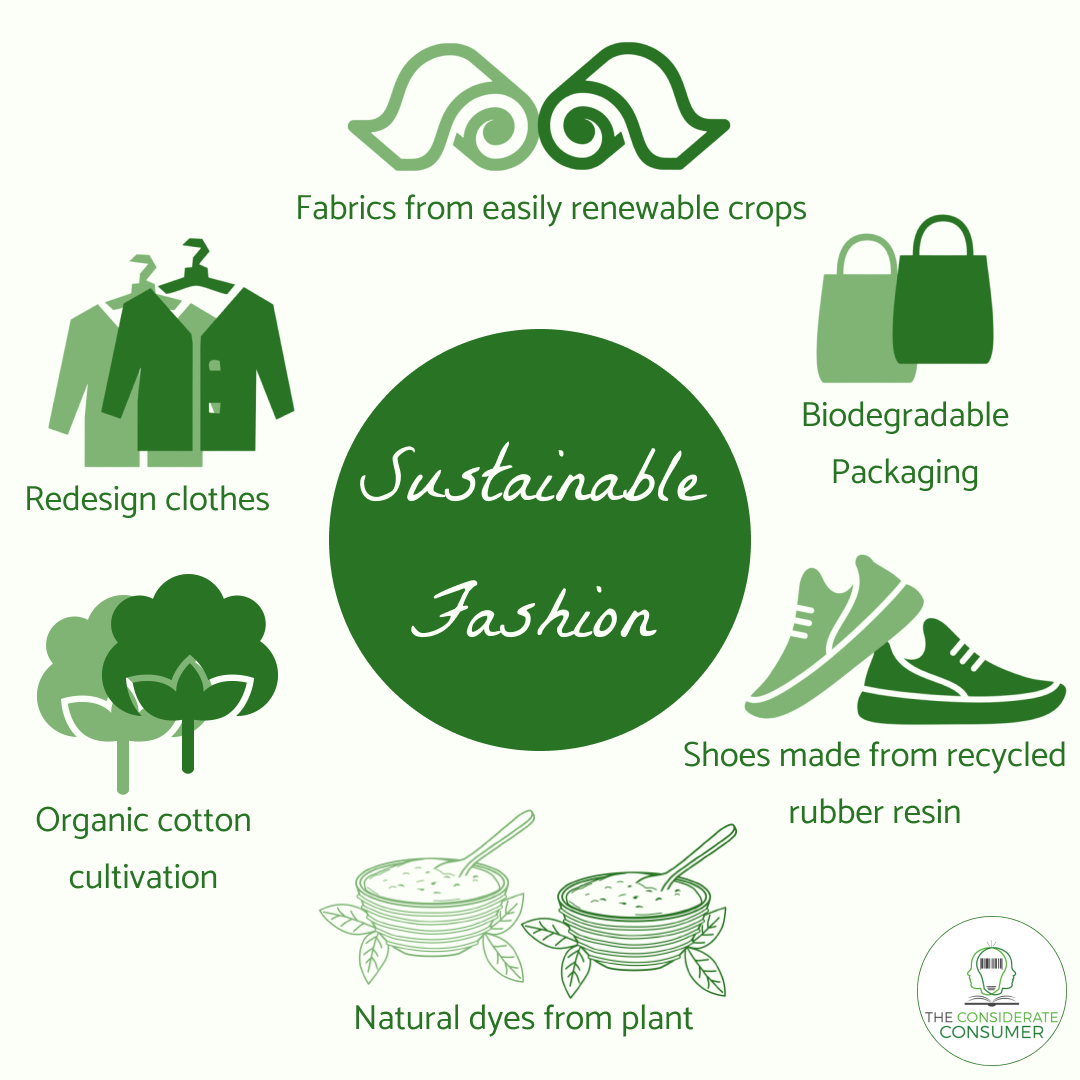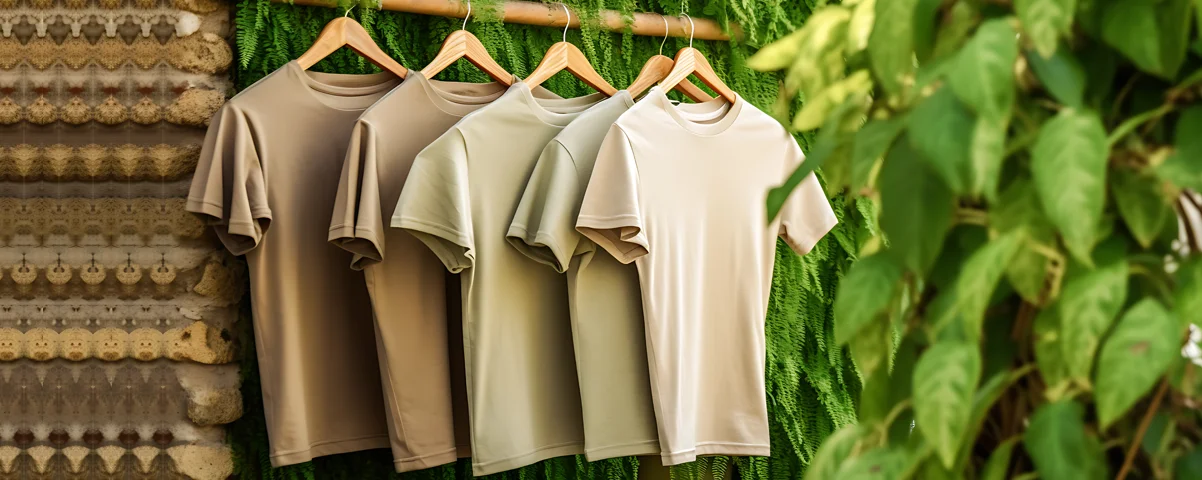Cape Town Sustainable Fashion: Honest Clothes for a Much Better Planet
Cape Town Sustainable Fashion: Honest Clothes for a Much Better Planet
Blog Article
Stay Ahead of the Contour by Checking Out Cutting-edge Fashion Patterns
In an industry as vibrant as style, staying in advance involves greater than simply complying with current patterns-- it requires an expedition of advancement. Smart textiles, as an example, are changing garments right into useful work of arts, while 3D printing is changing design processes with its adjustable, waste-reducing capacities. As sustainability becomes a keystone, technologies like eco-friendly products and circular style practices are improving environmental duty - Cape Town Sustainable Fashion. Furthermore, the convergence of modern technology and style advertises a brand-new age of consumer involvement. Exactly how, after that, can these arising patterns redefine the future of fashion, and what effects do they hold for brand names seeking to flourish in this evolving landscape?

Welcoming Smart Textiles
Recently, the garment industry has seen a transformative change with the assimilation of wise textiles, a sophisticated development that mixes modern technology with fabric. This development stands for not only a combination of visual appeals and capability however likewise a considerable leap in the direction of sustainability and personalization in vogue. Smart fabrics, additionally understood as e-textiles, installed sophisticated electronics such as sensors and conductive threads within the fabric, allowing garments to engage with the user or the atmosphere.
These fabrics are developed to keep an eye on physical criteria, such as heart price or body temperature, supplying real-time health analytics. Beyond health and wellness applications, smart textiles are also being utilized for flexible clothes, which can alter color or pattern in feedback to ecological stimulations, thus supplying a dynamic style experience.
Additionally, the advancement of energy-harvesting fabrics that generate power from motion or sunshine is leading the way for self-sufficient wearable innovation. This development is appealing to eco conscious consumers and developers aiming to reduce the environmental footprint of fashion. As r & d in this area development, wise fabrics are anticipated to come to be increasingly prevalent, reshaping the landscape of modern-day fashion with their multifunctional capacities.
The Rise of 3D Printing
Reinventing the production landscape, 3D printing has become a game-changer in the fashion industry. This innovative modern technology has allowed designers to push the borders of creativity, generating elaborate and personalized garments that were formerly unbelievable. By leveraging digital design and additive production, 3D printing facilitates the production of complicated geometries and patterns, allowing developers to trying out brand-new structures and frameworks.
A remarkable benefit of 3D printing in fashion is its capacity to create on-demand, reducing waste and decreasing inventory demands. This efficiency not only optimizes production processes however likewise enables quick prototyping, making it possible for designers to bring their visions to life in a much shorter timeframe. Moreover, 3D printing supports personalization somewhat unparalleled by standard approaches, supplying individualized fits and special designs customized to individual consumer choices.
The rise of 3D printing has actually additionally equalized fashion, making it accessible to arising designers who can now produce premium items without substantial economic investment in traditional manufacturing infrastructure. As innovation continues to advancement, the fashion business is poised to harness the complete possibility of 3D printing, exploring new products and methods that will undoubtedly redefine just how fashion is developed and generated.
Sustainable Style Technologies
As the fashion business comes to grips with journalism requirement for environmental duty, sustainable fashion advancements have actually arised at the forefront of transformative change. The expanding recognition of environmental effect has actually sustained a shift towards even more eco-conscious methods and products. Designers and brand names are now focusing on sustainability, integrating techniques that lessen waste and reduce carbon impacts.
One substantial advancement is the rise of round fashion, which emphasizes recycling and upcycling to expand the lifecycle of garments. This technique not just lowers waste but additionally encourages consumers to adopt a much more conscious method to clothing consumption. Additionally, the use of lasting materials, such as natural cotton, hemp, and recycled polyester, has acquired traction. These materials need less water and energy throughout manufacturing, significantly lessening ecological influence.
One more advancement lies in the adoption of ingenious dyeing techniques that make use of natural dyes or waterless processes, consequently lowering the vast quantities of water and chemicals typically made use of in textile dyeing. In addition, innovations in biotechnology have actually resulted in the creation of lab-grown leather and fabrics, providing ecologically pleasant and cruelty-free options to conventional materials. With these pioneering efforts, the garment industry is making meaningful strides in the direction of a much more lasting future.

Tech-Integrated Clothing
Tech-integrated apparel stands for a cutting-edge blend of fashion and modern technology, reshaping exactly how individuals connect with their clothes. This ingenious domain name is marked by the inclusion of smart fabrics and ingrained electronic parts, improving both capability and visual appeal. From physical fitness trackers embedded in sportswear to warmed coats managed through smartphone applications, tech-integrated clothing supplies consumers extraordinary benefit and adaptability.
Pioneering brand names are driving this pattern, concentrating on creating garments that react to ecological stimuli or user commands. As an example, some garments can transform color or pattern in response to temperature changes, while others incorporate biometric article source sensing units to check wellness metrics like heart price or stress levels. The smooth integration of modern technology into textiles additionally includes environmental sustainability, with efforts to establish self-cleaning textiles or garments that adjust to weather problems, thus reducing the need for several layers.
In addition, the introduction of wearable modern technology is not just limited to clothes however expands to accessories like watches and eyeglasses, additional broadening the range of tech-integrated fashion. As the sector proceeds to introduce, the potential for modification and personalization in garments expands, using customers distinct, tech-enhanced fashion experiences that cater to their individual requirements and choices.
Future of Virtual Fashion
In recent times, the future of virtual style has actually arised as a transformative force within the market, see this website leveraging improvements in electronic technology to redefine exactly how fashion is developed, experienced, and eaten. By incorporating increased fact (AR), online reality (VIRTUAL REALITY), and 3D design devices, developers can now craft interactive and immersive experiences that transcend conventional style boundaries. Digital fashion enables for the production of garments that exist only in digital settings, providing unlimited possibilities for technology without the limitations of physical manufacturing.
This electronic shift not just presents possibilities for creative expression but additionally addresses sustainability problems intrinsic in standard fashion methods. Cape Town Sustainable Fashion. By getting rid of the demand for physical sources, virtual style minimizes waste and decreases carbon impacts. In addition, the increase of online style lines up with the boosting customer need for individualized and one-of-a-kind experiences, as online garments can be tailored and customized to specific preferences with simplicity

Verdict
The apparel industry's future lies in the assimilation of innovative innovations and sustainable practices - Cape Town Sustainable Fashion. Smart fabrics and tech-integrated garments are boosting functionality, while 3D printing supplies opportunities for personalization and waste reduction. Lasting fashion, via round approaches and environmentally friendly products, shows a commitment to environmental stewardship. Additionally, online fashion is poised to redefine consumer communications. Adapting to these fads is important for brands seeking to continue to be pertinent and affordable in this rapidly advancing landscape.
In current years, the fashion market has witnessed a transformative change with the combination of clever textiles, an innovative development that mixes technology with fabric.As the fashion industry grapples with the pressing need for environmental responsibility, lasting fashion developments have emerged at the leading edge of transformative modification.In recent years, the future of online fashion has arised as a transformative force within the sector, leveraging improvements in electronic modern technology to redefine how fashion is created, experienced, and consumed. The increase of digital style straightens with the increasing customer demand for customized and distinct experiences, as online garments can be tailored and tailored to private preferences with convenience.
The style industry's future lies in the integration of ingenious innovations and lasting techniques.
Report this page